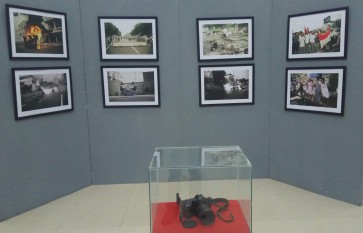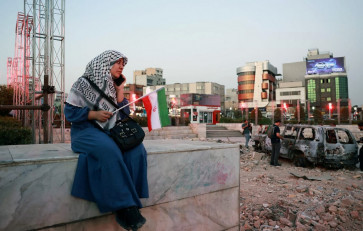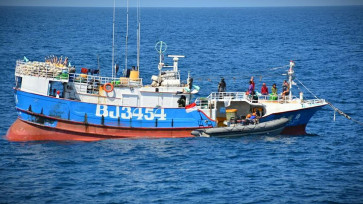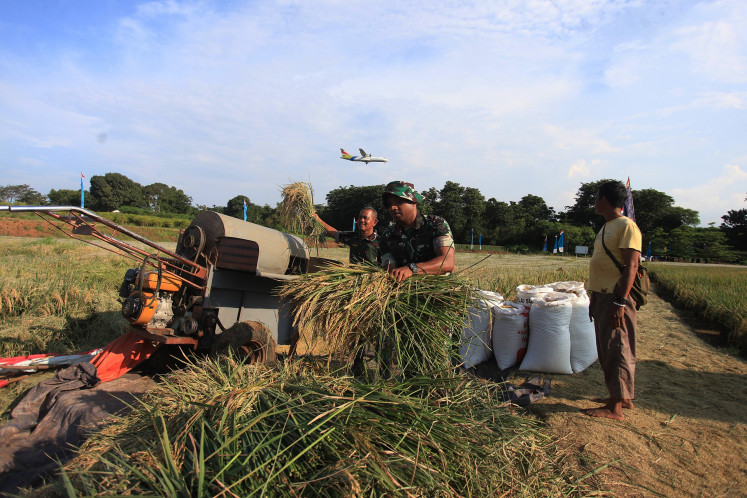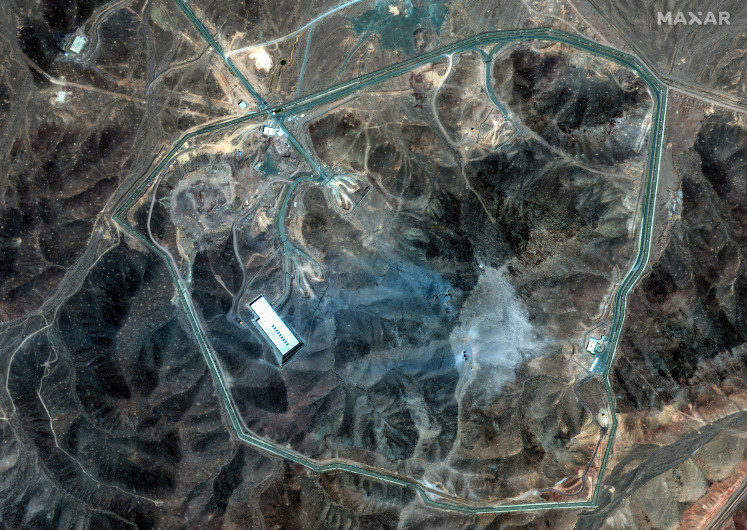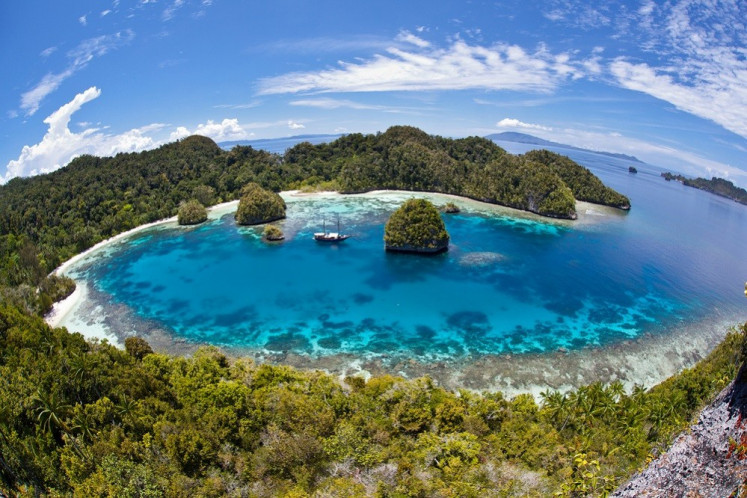Popular Reads
Top Results
Can't find what you're looking for?
View all search resultsPopular Reads
Top Results
Can't find what you're looking for?
View all search resultsFMs address South China Sea, Myanmar issues
Indonesia is attempting to lead ASEAN to solve the region’s two most high-profile political and security issues — democracy in Myanmar and the overlapping sovereignty claims in the South China Sea — during its chairmanship this year
Change text size
Gift Premium Articles
to Anyone

I
ndonesia is attempting to lead ASEAN to solve the region’s two most high-profile political and security issues — democracy in Myanmar and the overlapping sovereignty claims in the South China Sea — during its chairmanship this year.
As foreign ministers of the 10-member grouping kick off their three-day retreat here Saturday, the dispute around the Spratly and Paracel Islands in the South China Sea and democracy in Myanmar will draw most of their attention.
Foreign Ministry’s director general for ASEAN affairs Djauhari Oratmangun said Indonesia was also keen to play a role as a broker in finding solutions to disputes in the South China Sea, one of the world’s key hotspot that has become a stage for China and the US to showcase their power in the Asia-Pacific region.
During the Lombok meeting, the ASEAN working group on the South China Sea would report to ASEAN senior officials on the results of its meeting with the Chinese delegation in Kunming, China, last December. China, Vietnam, Taiwan, Brunei, Malaysia and the Philippines have sovereignty claims in the resource-rich territory, while Indonesia does not.
While many expected the China-ASEAN meeting on the South China Sea to settle the problems, officials expressed pessimism about the mid-level meeting, which they said did not have the capacity to solve such a big issue.
The working group, in fact, only worked to clarify guidelines within the so-called declaration of codes of conduct (DOC) on the South China Sea that has existed for years.
“We haven’t agreed on the guidelines as there are still differences between China and ASEAN on the perceptions of the goals of the meeting. Actually, we are still trying to close that gap and creating
guidelines, which can evolve into codes of conduct that can be used to keep the area peaceful,” Djauhari said Friday.
Foreign Minister Marty Natalegawa said earlier that under Indonesia’s chairmanship, dialogue between ASEAN and China on the dispute would continue, with the hope that all parties could develop codes of conduct on how to jointly manage the area and settle the problem of claims to the sea.
“However, in the final analysis, it is the claimant states themselves that have to solve the claims problem bilaterally in accordance with international law,” Marty said.
Meanwhile, Myanmar Foreign Minister U Nyan Win is scheduled to brief ASEAN counterparts on the country’s progress in executing its roadmap to democracy after it completed its general elections to elect members of parliament late last year.
Indonesian diplomats said the Myanmar issue was nearly resolved as no matter how deficient the process, the country had conducted a general election and Indonesia hoped the issue could be resolved during its chairmanship this year.
“ASEAN wants to declare the Myanmar issue settled once and for all this year. But first Myanmar must form a government that is inclusive based on their own constitution, which specifies that anyone
can hold a position within the government, including those that did not join the election,” the ministry’s director for ASEAN political and security affairs Ade Padmo Sarwano said Friday.

